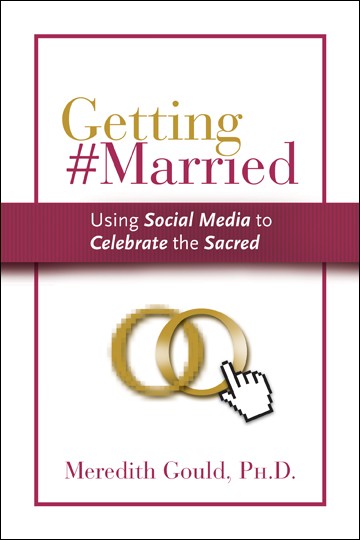Getting #Married

I was out of town for Meredith Gould and Dan Webster's wedding, but I felt like I was a part of it. Why? Because Meredith and Dan made sure that social media was central to the worship service, so I was able to participate with that cloud of witnesses through glancing through tweets, reading blogposts, and checking out Facebook.
Meredith wrote a how-to book on the experience, and Getting #Married has just been released. So I invited Meredith to the blog for some conversation.




